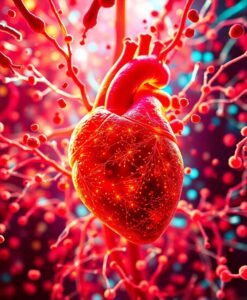Some microbes normally associated with health may behave differently when the gut environment shifts. That idea reshapes how we think about interventions: boosting one organism might help in one setting and harm in another. Research that maps these complex relationships can guide more precise therapies, such as tailored diets, targeted probiotics, or drugs that adjust microbial metabolism rather than wiping microbes out.

This line of work matters because heart disease remains a leading cause of disability and death worldwide. Learning which microbes matter and why could expand options for prevention and treatment in ways that include lifestyle, biology, and access to care. Follow the full article to see which species scientists flagged and how these findings might connect to broader efforts to support healthier, more inclusive outcomes for people at risk.
Scientists in Seoul have uncovered 15 gut bacterial species linked to coronary artery disease, showing that microbes can influence heart health far beyond digestion. Their findings reveal how shifts in gut microbial function — including inflammation, loss of protective species, and overactive metabolic pathways — may drive disease progression. Intriguingly, even “good” bacteria like Faecalibacterium prausnitzii and Akkermansia muciniphila can become harmful under certain conditions.

